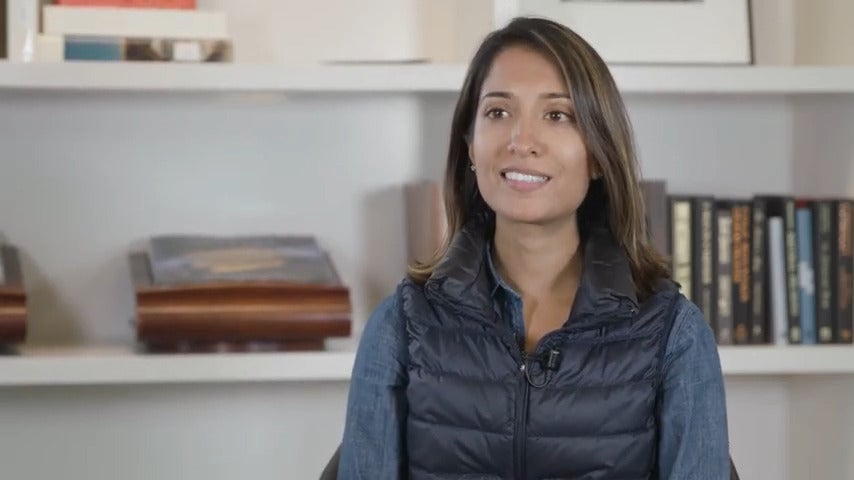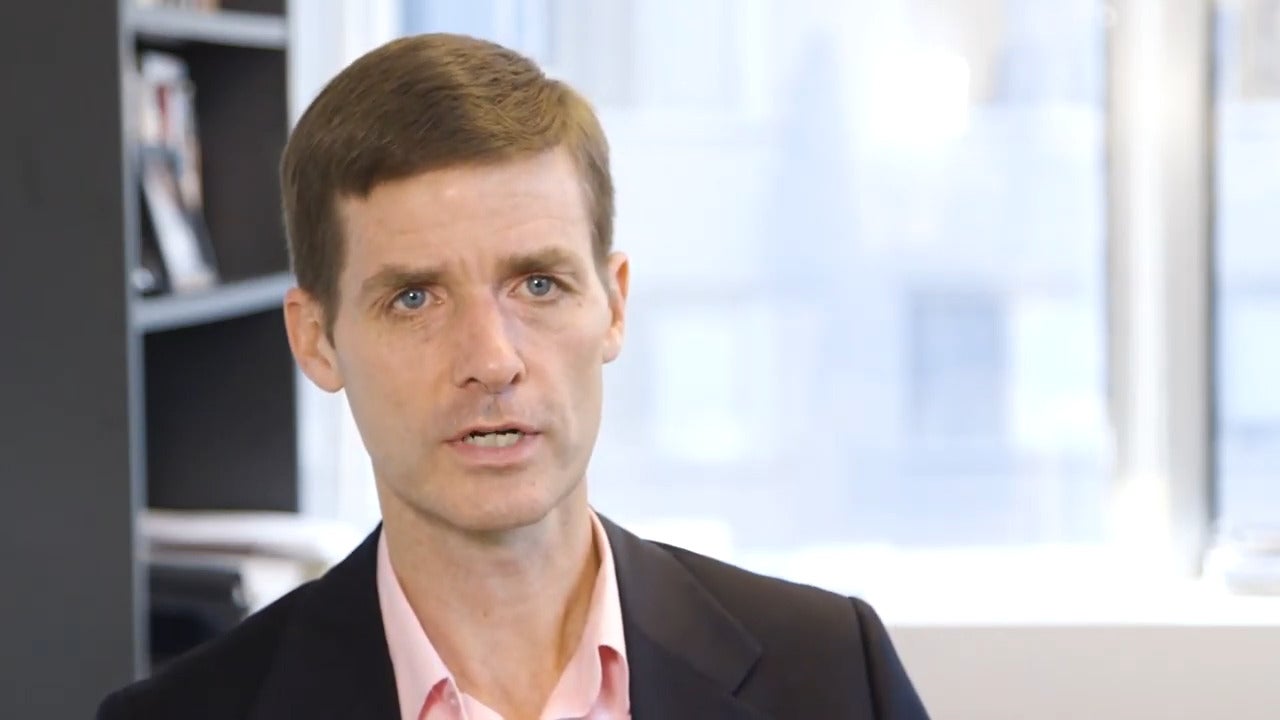
Editor’s Note: This interview originally appeared in the JPMorgan Chase & Co. Corporate Responsibility Report.
Jamie Dimon is chairman and CEO of JPMorgan Chase. Dimon is pictured on the right with Aspen Institute President and CEO Walter Isaacson. In early 2014, Dimon sat down with Isaacson to discuss corporate responsibility and strategies for expanding access to economic opportunity. JPMorgan Chase is partnering with the Aspen Institute Opportunity Youth Incentive Fund as part of New Skills at Work, a JPMorgan Chase workforce development initiative launched in 2013.
Walter Isaacson: There is an increased focus on income inequality and lack of access to economic opportunity. To what extent are those issues of concern to JPMorgan Chase?
Jamie Dimon: This is a moral issue and a significant concern for our company and the country. People need to recognize that it’s the luck of the draw — had they been born in different circumstances, the same doors would not have been open to them. So we all have an obligation to create that opportunity for others. But it’s an economic issue, too. There might be an Einstein or a Steve Jobs out there, and if we fail to give them a chance to realize their potential, it hurts our economy — and our society.
As a bank, the most powerful way we help create opportunities is by providing the capital that businesses, governments, and nonprofits need in order to grow and create jobs. But job creation is only part of the equation. People need the skills and training to compete for those jobs. However, many of our clients tell us that they can’t find workers with the necessary skills. Even with high unemployment rates, millions of jobs are open. That’s bad for business, bad for communities, and bad for individuals.
 In 2013, we launched a $250 million initiative called New Skills at Work, which will identify the skills that employers need, get that information to people looking for jobs, and fund programs to help potential workers get those skills. The solution is larger than a single initiative, but we think that our focus on this issue can help put a dent in the skills gap, shrink the income gap a bit, and give our entire economy a boost.
In 2013, we launched a $250 million initiative called New Skills at Work, which will identify the skills that employers need, get that information to people looking for jobs, and fund programs to help potential workers get those skills. The solution is larger than a single initiative, but we think that our focus on this issue can help put a dent in the skills gap, shrink the income gap a bit, and give our entire economy a boost.
WI: What would you like to see policymakers do to better encourage and expand access to opportunity?
JD: Overall, we would like to see more collaboration between government and business. We’re all talking about improving income inequality and expanding opportunity, so let’s focus on putting policies in place that get the job engine revving and the economy growing. It’s absolutely critical to fix our immigration system. It’s the right thing to do, and there’s an enormous economic benefit. Most economists think that if we enact the employment-based immigration reform that some have proposed, we could add more than two percentage points to real gross domestic product over the next 10 years — which would be tremendously powerful.
Education policy is another area that could make or break our economy — and it’s also the foundation for expanding access to opportunity. We’ve been encouraged to see more emphasis on community colleges and technical training programs. The reality is that close to half of the jobs created over the next few years will be middle-skill jobs — meaning people need a high school education, but not necessarily a four-year degree. So we should recognize that there are alternate paths to a successful and rewarding career and invest our workforce development dollars with that thought in mind.
WI: JPMorgan Chase is investing enormous effort in rebuilding the trust and confidence of your stakeholders, and yet the company continues to face a steady stream of negative headlines. What’s it going to take to turn the corner?
JD: It was clearly a tough year with the settlements, and we’re glad to have those behind us. Despite the challenges, we stayed focused on serving our clients and communities around the world. I am incredibly impressed with the resolve and resiliency of our people. Even under such intense attention, they kept a relentless focus on serving our clients.
One thing to keep in mind is that where we did make mistakes, we’ve acknowledged them and made significant progress toward fixing them. We’re investing unprecedented resources to ensure that our compliance and control processes and culture meet the highest standards. And the changes we’re putting in place are designed to make certain our controls will be robust and effective, day in and day out, over the long term. We also fully appreciate that rebuilding trust requires more than talk. Our regulators and shareholders want to see progress and performance — and so do we. There is a lot of progress we can point to already, and, by the end of this year, I believe we will be able to demonstrate an enormous amount more — which I think will go a long way toward restoring confidence that JPMorgan Chase is the safest and strongest bank on the planet.
WI: The Aspen Institute argues that excessive short-term pressures in today’s capital markets are bad for business and society. What can be done to encourage and reward longer-term thinking by businesses?
JD: The way to build a healthy and vibrant company is to recognize that profits reflect decisions and investments made over many years. So at JPMorgan Chase, we focus on quality profits, not quarterly profits. Quality to us means good clients; excellent products; constant innovation; state-of-the-art systems; and dedicated, capable, well-trained employees who care about the customers we serve. It means building consistently, not overreacting to short-term factors, and being trusted and respected by our clients in all of the communities where we do business.
In addition, part of the broader strategy employed to build successful, vibrant companies that stand the test of time may include more business leaders being willing to not only say that there’s clear alignment between business and societal interests — but also be willing to put action behind it. That’s what we’re trying to do with the Global Health Investment Fund, which is designed to attract private capital to address global health challenges while providing a financial return for investors.
We’ve also built a partnership with The Nature Conservancy to build a new initiative that will aim to attract and deploy private capital to projects that protect and restore critical ecosystems. It’s true we can’t always express efforts to address broader societal challenges in terms the markets recognize and reward today, but that’s not an excuse to do nothing. And if more companies step up, the markets will start to catch up.
RELATED CONTENT:
Aspen Institute Video: Jamie Dimon on closing the workforce skills gap

